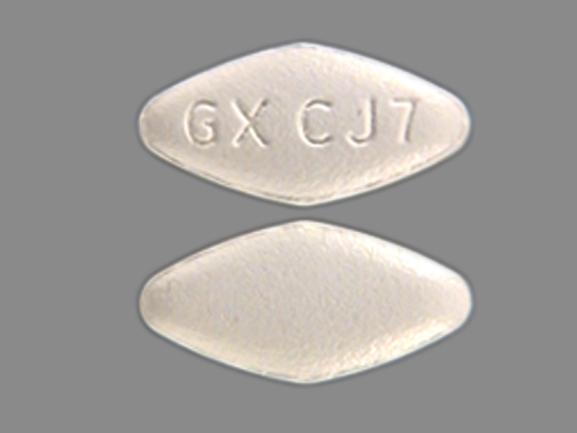Epivir Disease Interactions
There are 4 disease interactions with Epivir (lamivudine).
NRTIs (applies to Epivir) hepatitis B
Major Potential Hazard, Moderate plausibility. Applicable conditions: Infectious Hepatitis
Severe acute exacerbations of HBV have been reported in HIV-1/HBV-coinfected patients who have discontinued products containing emtricitabine, lamivudine, and/or tenofovir disoproxil fumarate (DF) and may occur with discontinuation of tenofovir alafenamide-containing products. It is recommended that all patients with HIV-1 infection be tested for the presence of HBV before or when initiating products containing emtricitabine, lamivudine, tenofovir DF, or tenofovir alafenamide. Hepatic function should be monitored closely with both clinical and laboratory follow-up for at least several months in HIV-1/HBV-coinfected patients who discontinue products (including fixed-dose combination products) that contain emtricitabine, lamivudine, tenofovir DF, or tenofovir alafenamide. If appropriate, initiation or resumption of antihepatitis B therapy may be warranted, especially in patients with advanced liver disease or cirrhosis since posttreatment exacerbation of hepatitis may lead to hepatic decompensation and liver failure.
NRTIs (applies to Epivir) hepatotoxicity
Major Potential Hazard, Moderate plausibility. Applicable conditions: Alcoholism, Liver Disease
Hepatotoxicity including lactic acidosis, severe hepatomegaly with steatosis, fulminant hepatitis, and hepatic failure has been associated with the use of some nucleoside reverse transcriptase inhibitors (NRTIs) alone or in combination with other antiretroviral agents. Therapy with NRTIs should be administered cautiously in patients with preexisting liver disease, a history of alcohol abuse, or hepatitis. Therapy should be suspended if clinical or laboratory findings suggestive of lactic acidosis or pronounced hepatotoxicity occur. The use of abacavir is contraindicated in patients with moderate to severe liver dysfunction as its safety and efficacy have not been established in these patients.
NRTIs (applies to Epivir) pancreatitis
Major Potential Hazard, Moderate plausibility. Applicable conditions: Hyperlipidemia, Alcoholism
The nucleoside reverse transcriptase inhibitors, didanosine, stavudine, and lamivudine, may cause pancreatitis. The incidence is generally low but is up to 7% with didanosine, and up to 18% in pediatric patients given lamivudine. Patients with a history of or known risk factors for pancreatitis (such as alcohol abuse or hypertriglyceridemia) should be monitored closely during therapy with these agents. Therapy should be discontinued at the first signs/symptoms suggestive of pancreatitis (e.g., nausea, vomiting, abdominal pain, hyperamylasemia with dysglycemia, rising triglycerides, decreasing serum calcium), and preferably permanently discontinued if clinical pancreatitis develops.
NRTIs (applies to Epivir) renal dysfunction
Moderate Potential Hazard, Moderate plausibility.
The apparent oral clearance of nucleoside reverse transcriptase inhibitors is decreased in patients with renal dysfunction. Dosage adjustments are recommended for lamivudine and stavudine in patients with CrCl less than 50 mL/min; zidovudine dosage should be reduced in patients with CrCl less than 15 mL/min. Fixed-dose combination products containing lamivudine are not recommended for patients with CrCl less than 30 or 50 mL/min; the manufacturer product information should be consulted.
Switch to professional interaction data
Epivir drug interactions
There are 54 drug interactions with Epivir (lamivudine).
Epivir alcohol/food interactions
There is 1 alcohol/food interaction with Epivir (lamivudine).
More about Epivir (lamivudine)
- Epivir consumer information
- Check interactions
- Compare alternatives
- Pricing & coupons
- Reviews (2)
- Drug images
- Side effects
- Dosage information
- During pregnancy
- Generic availability
- Drug class: nucleoside reverse transcriptase inhibitors (NRTIs)
- Breastfeeding
- En español
Related treatment guides
Drug Interaction Classification
| Highly clinically significant. Avoid combinations; the risk of the interaction outweighs the benefit. | |
| Moderately clinically significant. Usually avoid combinations; use it only under special circumstances. | |
| Minimally clinically significant. Minimize risk; assess risk and consider an alternative drug, take steps to circumvent the interaction risk and/or institute a monitoring plan. | |
| No interaction information available. |
See also:
Further information
Always consult your healthcare provider to ensure the information displayed on this page applies to your personal circumstances.


